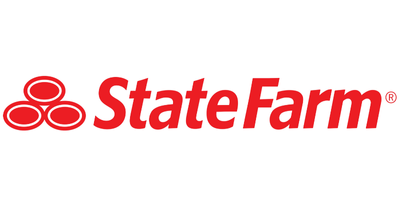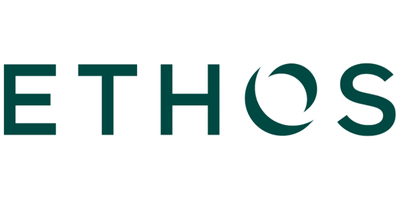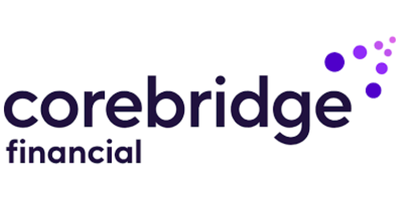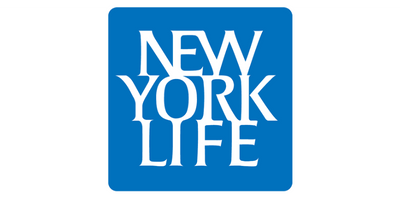Overview
Finding life insurance when you have a health condition can feel like climbing a mountain. It can be slow, stressful, and full of “what ifs.” Maybe you’ve been told your diabetes, heart disease, or mental health history will make coverage impossible. We promise, it’s not as bad as it sounds.
Today’s life insurance companies are a lot more flexible than they used to be. Many actually specialize in working with people who have pre-existing or chronic conditions. The trick is knowing which insurers to look at and how to make your application as strong as possible.
In this guide, we’ll break down which health conditions affect life insurance the most, what to look for in a good insurer, and some insider tips to boost your chances of getting approved… even if you’ve been turned down before.
What Health Conditions Affect Life Insurance the Most
When you apply for life insurance, companies are basically trying to predict risk. They are predicting how long they expect you to live, based on your health and lifestyle. That means certain conditions can bump up your premiums or make approval a little harder. But don’t panic, it’s all about how well the condition is managed.
Here are some of the big ones that tend to affect rates and eligibility:
Heart disease and high blood pressure: Anything heart-related makes insurers take a closer look. But if your blood pressure and cholesterol are under control and you’ve gone a few years without any major heart issues, you can still get good coverage.
Diabetes: Especially Type 2 diabetes. However, if you keep your A1C levels in check and follow your treatment plan, many insurers will consider you a manageable risk.
Mental health conditions: Depression and anxiety are way more common (and better understood) than they used to be. If your condition is well-managed with treatment or therapy, you’ll likely still qualify for standard rates.
Cancer survivors: If you’re in remission, you can absolutely get life insurance. The longer you’ve been cancer-free, the better your chances. Most companies look closely at the type and stage.
Lung and respiratory issues: Mild asthma? Usually not a big deal. But more severe conditions like COPD can make things tougher, since they’re tied to long-term breathing problems.
At the end of the day, stability is what matters most. If your condition is being treated and your overall health is steady, insurers will often look at you much more favorably than you’d think.
The Rundown
Best for no-medical exam life insurance: Mutual of Omaha
Best overall: MassMutual
Best for customer satisfaction: State Farm
Best for being a friendly, trustworthy insurer: Amica
Best for no-hassle insurance: Ethos
Best for lots of options under one roof: Corebridge
Best for term life insurance: Protective
Best for whole life insurance: New York Life
Best for riders: Nationwide
- Best for: No-medical exam life insurance
Mutual of Omaha
Details:
Mutual of Omaha is a Nebraska-based life insurance company that was founded in 1909. Currently, the company has more than 6.7 million policies in force and over 19 million members. It’s the 15th-largest life insurer, with just under 2% of the total market share.
Why we like it
If you’re looking for a life insurance policy that doesn’t require a medical exam, Mutual of Omaha is a good option. The company offers guaranteed issue whole life policies for eligible applicants between the ages of 45-85, or 50-75 in New York. Additionally, certain people can get up to $300,000 in term life insurance without an exam.
Pros & Cons
Pros:
Eligible applicants can get term life and whole life without an exam
Above-average customer satisfaction rating
Can get quotes and apply online for some policies
Cons:
More complaints than expected for its size
Must work with a financial professional to buy a policy
- Best for: Overall life insurance
MassMutual
Details:
MassMutual is a mutual life insurance company, which means it’s wholly owned by its policyholders. The Boston-based insurer offers life insurance policies and retirement products in all 50 states and Washington D.C. It’s one of the oldest life insurance companies, founded in 1851.
Why we like it
MassMutual stands out for its impressive customer satisfaction score, earning one of the top spots in J.D. Power’s 2024 Individual Life Insurance Study. MassMutual offers many different types of life insurance, and it’s easy to compare policies on its website. It also receives far fewer complaints than expected for its size, according to the National Association of Insurance Commissioners (NAIC).
Pros & Cons
Pros:
Excellent customer satisfaction score
Good variety of policy options
Can file claims online
Cons:
Doesn’t offer online policy sales
Most policies require a medical exam
- Best for: Customer satisfaction
State Farm
Details:
State Farm is one of the most recognizable names in insurance, known for its catchy slogan, “Like a good neighbor, State Farm is there.” As of 2024, State Farm had nearly $1.2 trillion in life insurance policies in force. It’s currently the eighth-largest life insurance company, with just about 3% of the total market share in the U.S.
Why we like it
In J.D. Power’s 2024 Individual Life Insurance Study, State Farm was ranked #1 for overall customer satisfaction out of 21 companies. It also receives far fewer complaints than expected for its size. If you’re not sure what type of life insurance is right for you (or how much coverage you need), State Farm offers online tools and calculators to help you decide.
Pros & Cons
Pros:
Highest rated life insurer for overall customer satisfaction
Receives few complaints from customers
Helpful online tools and life insurance calculators
Cons:
Can’t purchase a life insurance policy online
Coverage isn’t available in Massachusetts or Rhode Island
- Best for: Being a friendly, trustworthy insurer
Amica
Details:
Amica is a friendly, mutual insurance company that’s been around since 1907. Headquartered in Rhode Island, they started with auto insurance and eventually expanded to include home and life coverage. Because they're mutual, their policyholders own the company, which often means more focus on customer service and value.
Why we like it
Backed by over a century of trust and top-tier financial strength, Amica brings both reliability and solid coverage to the table. Their term and whole life policies are both flexible and accessible, and they consistently earn high marks for customer satisfaction.
Pros & Cons
Pros:
Known for its great customer service
Offers convenient features like medical-exam waivers, accelerated death benefit riders, and disability waiver rider (where available)
Cons:
Rider options can be a bit limited depending on your state or policy type.
Slightly less transparency on online pricing, though quotes are available via the site.
- Best for: No hassle life insurance
Ethos
Details:
Founded in 2016, Ethos is a modern insurtech company that makes buying life insurance quick and painless. Instead of acting as a traditional insurer, Ethos partners with big-name carriers like Legal & General America, Ameritas, and Mutual of Omaha to offer policies. Everything is handled online, from application to approval, which is a big draw for people who want life insurance without all the paperwork and medical appointments.
Why we like it
Ethos is a great choice if you’re looking for convenience. Most applicants can skip the medical exam and get coverage in minutes, all from their phone or laptop. On top of that, you’re still backed by established, financially strong insurers, so you don’t have to sacrifice peace of mind for speed.
Pros & Cons
Pros:
Super fast and simple application
Partners with highly rated insurers, so policies are solid.
Many people get same-day approval
Cons:
Not a ton of customization compared to traditional insurers.
Customer support is mostly email-based
Only offers term life and a small whole life option (no universal or variable policies).
- Best for: Lots of options under one roof
- Term Life Insurance
- Permanent Life
- Final-Expense Life Insurance
- Universal Life (including Variable Universal Life)
Corebridge
Details:
Corebridge Financial is the rebranded successor of AIG's life insurance and retirement business. Based in Houston, it spun off into its own public company in 2022 and now offers a full suite of insurance and retirement products. Their life insurance lineup includes term, permanent, universal, and final-expense policies.
Why we like it
Corebridge delivers flexibility and dependability in one package. Whether you’re after simple term coverage, a policy that builds cash value, or something to help with final expenses, they’ve got options to match. Plus, being backed by the legacy of AIG and having a strong financial reputation gives extra peace of mind.
Pros & Cons
Pros:
Backed by a well-known, financially stable parent company with a long history.
Some policies are delivered fast, like in as little as 24 hours
Offers a full range of policies
Cons:
Their public-facing info is a bit light
Universal life policies are available but seem less prominently marketed
- Best for: Term life insurance
Protective
Details:
Protective was established in 1907 and has been selling life insurance products to individuals and families for more than a century. In addition to life insurance, Protective also has retirement products, commercial mortgages, and asset protection plans. The company is based in Birmingham, Alabama.
Why we like it
Protective offers term life insurance policies with terms ranging from 10 to 40 years (most insurers cap term limits at 30 years). The company offers coverage amounts between $100,000 and $50 million, and rates start as low as $25 per month. You can get a quote on Protective’s website, and apply either online or by phone.
Pros & Cons
Pros:
You can get term life insurance for up to 40 years
Online quotes and applications available for term life
Term life has a maximum coverage limit of $50 million
Cons:
Fewer riders available than some competitors
Most term life policies require a medical exam
- Best for: Whole life insurance
New York Life
Details:
New York Life is the third-largest life insurance company, with just over 6% of the total market share. As of 2024, it had almost $13 billion in direct premiums written, according to the NAIC.
Why we like it
When you get whole life insurance through New York Life, you’re eligible to earn annual dividends based on the company’s financial performance. In 2025, New York Life announced its biggest dividend payout in history, $2.5 billion. We also like that New York Life offers accumulation-focused whole life policies, which can help you earn more cash value.
Pros & Cons
Pros:
Offers dividend-paying whole life insurance
Has accumulation-focused whole life insurance policies
Fewer complaints than expected
Cons:
Below average customer satisfaction score
Can only get a quote or buy a policy through an agent
- Best for: Riders
- Term life insurance
- Whole life insurance
- Universal life insurance
- Indexed universal life insurance
- Variable universal life insurance
Nationwide
Details:
Nationwide has 3.6% of the total life insurance market share, which makes it the seventh-largest life insurer overall. The company was founded in 1926 and is based in Columbus, Ohio.
Why we like it
If you want to customize your life insurance policy, Nationwide could be a good pick. The company offers a great selection of optional riders, like a premium waiver rider, estate protection rider, accidental death benefit rider, and waiver of monthly deductions rider. Many Nationwide life insurance policies automatically include chronic illness, critical illness, and terminal illness riders.
Pros & Cons
Pros:
Wide selection of life insurance riders
Good customer satisfaction rating
Cons:
Can’t get a quote online for permanent life insurance
Doesn’t offer 24/7 customer service
What to Look for in a Life Insurance Company
Not all insurance companies see health conditions the same way. Some are very strict, while others are surprisingly open-minded. When you’re shopping around, here’s what to pay attention to:
Flexible underwriting: This is insurance-speak for how the company judges your health. Some are more understanding about certain conditions, while others are black-and-white. An independent agent can tell you which companies are more lenient for your specific situation.
Different policy types: Decide if you want term life (covers you for a set number of years) or whole life (lasts your entire lifetime). Some companies limit your choices if you have certain health issues, so make sure you know your options.
No-exam or simplified issue options: These policies skip the medical exam and just ask basic health questions. They’re faster to get, which is great if you don’t want to deal with blood tests or doctor visits, but they can be a bit pricier.
Strong financial reputation: You want a company that’s going to be around (and able to pay your claim) decades from now.
Good customer experience: Look for reviews that mention how the company handles claims and communication, especially from people who’ve applied with medical conditions. A company that’s easy to work with can make a huge difference.
Tips to Improve Your Approval Odds
You don’t have to be in perfect health to get life insurance. You just need to be smart about how you apply. Here are a few ways to tip the odds in your favor:
Use an independent agent or broker. They work with multiple insurers and can find the one that fits your specific health situation.
Get your records in order. Having updated medical info (like lab results or doctor notes) that show your condition is under control helps insurers see you as a lower risk.
Apply when things are stable. If you just switched meds or had a recent surgery, it might be worth waiting a few months until your health has evened out.
Be upfront and honest. Don’t hide health details. Insurers can find them in your medical and prescription records anyway. Being transparent actually builds trust.
- Control what you can. Quitting smoking, losing a bit of weight, and keeping your blood pressure in check can all make a noticeable difference in your premium quotes.
Alternative options if you’re declined
Getting declined for traditional life insurance isn’t the end of the road. There are still several ways to get meaningful coverage in place, even if your health history makes standard policies harder to qualify for.
One of the most common alternatives is guaranteed issue life insurance, which doesn’t require a medical exam or even health questions. Approval is automatic, making it a solid option if you’ve been turned down elsewhere. The trade-off is that coverage amounts are usually smaller, often between $25,000 and $50,000, and premiums tend to be higher.
Another option is a simplified issue policy, which skips the medical exam but includes a short health questionnaire. If your condition is mild or well-managed, this type of policy can be a nice middle ground. It’s easier to qualify for than traditional coverage and generally more affordable than guaranteed issue plans.
If you have access to group life insurance through your employer or a membership organization, definitely take advantage of it. These policies often have minimal or no health requirements, making them an excellent fallback if you’re struggling to get individual coverage.
You could also look into final expense insurance, which is designed to cover funeral and end-of-life costs. The coverage amounts are smaller, but the qualification process is simple, and it can ease the financial burden on your family.
Finally, remember that a “no” today doesn’t mean “no” forever. Health situations, and insurance underwriting rules, can change over time. If your condition improves or stays stable for a while, try applying again in a year or two. You might be pleasantly surprised by the new offers available to you.
FAQ's
What is life insurance and how does it work?
Life insurance is a contract between you and an insurance company. You pay a monthly or annual premium, and in return, the insurer promises to pay a lump sum (called a death benefit) to your chosen beneficiary if you pass away while the policy is active. That money can be used for anything, like covering living expenses, paying off debts, or funding future needs such as college tuition.
Do I really need life insurance?
It depends on your situation. If you have dependents, like children, a spouse, or even parents who rely on you financially, life insurance can help ensure they’re protected if something unexpected happens. If you’re young, single, and debt-free, you may not need coverage right away, but buying a policy early can lock in lower rates for the future.
What’s the difference between term life and whole life insurance?
Term life insurance covers you for a set number of years (like 10, 20, or 30 years) and is usually the most affordable option. Whole life insurance, on the other hand, lasts your entire lifetime and includes a cash value component that grows over time. Term is great for straightforward, budget-friendly protection, while whole life can make sense if you want permanent coverage or are interested in the savings feature.


















 by your friends at The Daily Navigator
by your friends at The Daily Navigator



